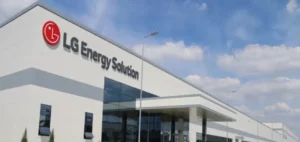Ford announced Feb. 13 that it would invest $3.5 billion to establish an electric vehicle battery plant in Marshall, Mich. The plant will be the first in the world to produce lithium iron phosphate (LFP) batteries supported by an automaker, according to Ford. The production of LFP batteries will allow Ford to diversify its battery offerings for its electric vehicles. LFP battery production will also benefit from lower costs and more stable supply chains, as they do not use nickel or cobalt, critical metals for lithium-cobalt-manganese (NCM) batteries.
The goal is to diversify Ford’s battery offerings for electric vehicles
The 35 GWh/year LFP plant is expected to begin production in 2026, with options to increase production thereafter. Battery production at the Michigan plant will underpin the company’s goal of reaching annual global production of 600,000 electric vehicles this year and 2 million vehicles by the end of 2026.
In addition, the production of LFP batteries will allow Ford to provide a second option for potential electric vehicle buyers who may favor longer battery life, faster charge times and increased affordability. This decision to invest in the battery plant also aligns with the priorities outlined by the U.S. Inflation Reduction Act (IRA), which will provide tax credits this year to electric vehicle manufacturers and consumers based on the source of raw materials and battery components.
Ford reaches agreement with CATL
To support its LFP battery production in the U.S. and abroad, Ford also has an agreement with Chinese battery manufacturer Contemporary Amperex Technology (CATL). As part of the agreement, CATL will provide Ford with LFP battery cell knowledge and services to assist the automaker in its operations. Ford is already engaged in battery collaborations with SK On and LG Energy Solutions.
Ford’s decision to partner with CATL is part of a trend of partnerships formed between automakers and battery manufacturers in recent years. Major auto producers are looking to form joint ventures with battery manufacturers to leverage their expertise and meet their EV production goals. Meanwhile, battery manufacturers have been eager to establish market share in the emerging EV industry.





















